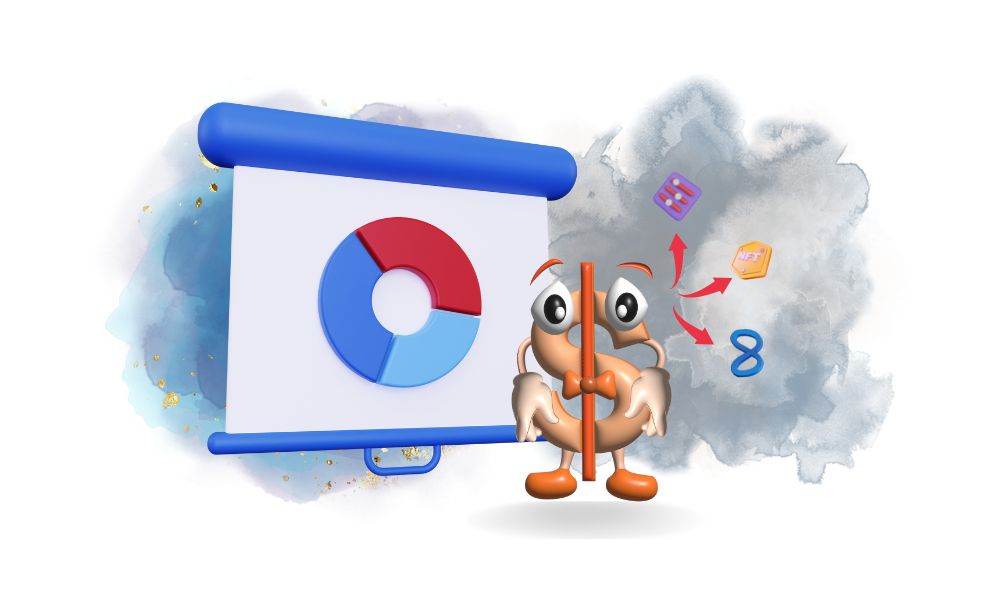
Non-fungible tokens (NFTs) are cryptographic assets on a blockchain that are different from each other because they have unique identification codes and metadata.
They can't be traded or exchanged at the same value as cryptocurrencies.
This is different from fungible tokens, such as cryptocurrencies, which are all the same and can therefore be used to make business transactions.
Mike Kondoudis, a trademark attorney who is licensed by the USPTO, says that Sony Music Entertainment, a big record company, has filed for trademarks related to non-fungible tokens and the Metaverse.
The huge company in the music business wants to put out live music performances on audio and video recordings that can be downloaded.
Tokens that can't be changed are used to prove that these recordings are real.
The filing also says that Sony Music wants to make music tracks in the form of NFTs.
In another filing, artists and their recordings as well as services for entertainment and marketing are listed.
Non-fungible tokens are like regular cryptocurrencies, but they don't hold money. Instead, they hold things like artwork, video, audio, and tickets.
Many industries, including the music business, are already being changed by them.
NFTs can be sold as music tracks, which are shown on the blockchain as unique tokens.
There are already a lot of musicians in the NFT scene. Kings of Leon was the first band to put out an album as an NFT in March.
Muse made history earlier this month when their album "Will of the People" became the first limited edition NFT to top the UK music chart.
It's important to note that the album was also available on CD and vinyl.
After partnering with the Binance exchange, the Weeknd added NFTs and Web3 elements to her world tour.
U.Today said that in March, Universal Music Group bought an NFT from the Bored Ape Yacht Club NFT collection.
This is another major label that works with Taylor Swift and other A-list artists.
The blockchain is used to make non-fungible tokens, which are unique digital assets or collectibles.
The blockchain, which is also used by cryptocurrencies like bitcoin, makes a permanent, public record of decentralized data with a time stamp.
NFTs, which are also called "nifties," look like things like art, music, videos, and in-game items.
They are mostly bought and sold online with cryptocurrency, and the software that makes them work is often the same as that of many cryptos.
Most of the time, you can buy NFTs with the cryptocurrency Ether or with dollars. The blockchain keeps track of all the transactions.
Even though anyone can look at the NFTs, only the buyer is the official owner. This gives the buyer a kind of digital bragging rights.
Cryptocurrencies are a fairly simple idea, but non-fungible tokens are a step up from that.
Modern financial systems are made up of complex trading and loaning systems for different kinds of assets, like real estate, lending contracts, and works of art.
NFTs are a step toward reinventing this infrastructure because they make it possible to make digital copies of physical assets.
Certainly, the idea of digital copies of physical assets and the use of unique identifiers are not new.
But when these ideas are put together with the benefits of a blockchain of smart contracts that can't be changed, they become a powerful force for change.
Maybe the most obvious benefit of NFTs is that they make markets work better.
When a physical asset is turned into a digital one, it speeds up processes and gets rid of middlemen.
NFTs on a blockchain that represent digital or physical art get rid of the need for agents and let artists connect directly with their audiences.
They can also help improve the way business is done.
For example, if a wine bottle has an NFT, it will be easier for different people in a supply chain to interact with it and track where it came from, how it was made, and where it was sold.
Ernst & Young, a consulting firm, has already made something like this for one of its clients.
Identity management also works well with tokens that can't be changed. Think about physical passports that must be shown at every point of entry and exit.
By turning each passport into an NFT, which has its own unique identifiers, it is possible to speed up the process of entering and leaving a jurisdiction.
In addition to this use case, NFTs can also be used to manage identities in the digital world.
FP Markets "Best Trade Execution"